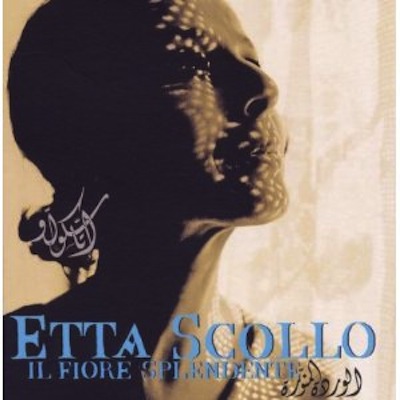 Year: 2008 Label: Edel CLASSICS
Year: 2008 Label: Edel CLASSICS
Not long ago in Bologna, while I was in the Bibliotheca of „Archiginnasio“ studying several literary documents, I became engrossed in the book Antologia dei poeti arabi di Sicilia (anthology of arabic poets of sicily) , published by Francesca M. Corrao (©2002, Mesogea by GEM srl). Reading these texts, originating from between the 9th and the 12th century and adapted by distinguished contemporary Italian poets, fascinated me like a secret code that, concealed in the shrine of an unfamiliar language, eventually revealed itself to me in the familiar language of my homeland and the sensitivity of contemporary lyricism. More than a year was to pass before I actually acquired a copy of this out-of-print book. In the meantime, I had researched the traces that the Arabic culture has left on my island since a certain summer night in the year 827. Back then, a fleet of Arabs, Berbers, Spanish and Persians, Egyptians and Maghrebians landed in Mazara. This was – in the unanimous opinion of historians and writers – the birth of an extraordinary era characterised by the spirit of tolerance among different religions, cultures, peoples and languages, who from this point on were to live together for more than two centuries. That made Palermo „the first metropolis of the High Middle Ages“(2). Palermo was the pulsating heart of a multi-ethnic and multicultural universe, a fact which the magnificent „Cappella Palatina“ bears witness to to this day. When I visited the castle Zisa, listening to the buzz of voices in the suq-ela-Balharm, the market of Ballarò, I tried to discern the sound of the Arabic language within the Sicilian. The following words by the writer Leonardo Sciascia came to my mind: „After the arabic conquest, the inhabitants of the island of Sicily started to behave like Sicilians“(3), however, only with some difficulty did I recognise the Palermo of Idrisi (the world’s first geographist) or the Syrakus of Ibn Hamdis (the most famous Sicilian-Arab poet, 1052-1132). These cities are icons of a Sicily that today, so it seems to me, lives on only within the power of imagination and that nurtures itself on oblivion. Whoever ventures into Sicily nowadays from North African countries such as Morocco or Tunisia is confronted with a discontinuous reality that concentrates on the island’s daily reinvention and thus tries to survive the chronic state of emergency that it is in. Herewith Sicily gives room to an „emptiness of the collective memory“. Maybe it was this very „emptiness“ that slowly aroused the desire in me to transfer the words of the Arabic and the contemporary poets into the language of music, to sing them. Arising from the images in which this dreamy, picturesque, refined and enthusiastic poetry describes a disconcertingly gorgeous Sicily to us, of whose gardens remain only a pale memory today, and of the woes and pain of its loss about which the verses of Ibn Hamdis speak, it is my wish to project those images an imaginary bridge between the past and present. To this end may the poets’ feelings serve me: „Images which are so far away that they appear to be illusions, which nevertheless bloom like flowers in the web of verse from yonder time“(4). These are the same topics, the ever recurring fragments of the drama of modern man, of all of us who are in search of the lost self more than ever before. We, the european Sicilians, and probably also the young europeanised muslims, carry in us those poets’ feelings who wrote not only about travels, battles and God, but about love in any form, too – spiritual and carnal, heterosexual and homosexual – and also about the sensual togetherness of celebrations and feasts, the enjoying of good wine and the fascination of fire.
Etta Scollo
1.the title was inspired by a text by Ibn Qalâquis / 2.quoted from: Vincenzo’s Di qua dal faro, Milan, Mondadori 1999. / 3. ibid / 4. See Antologia dei poeti arabi di Sicilia, published by Francesca M. Corrao (©2002, Mesogea by GEM srl, from which all the texts and translations on the cd were taken).
TRACKLIST
PRELUDIO (01.00) UN SOLO BACIO (04.06) listen to the track CORRO CON TE (03.17) listen to the track CALICE (03.36) listen to the track A IBN HAMDIS (05.21) listen to the track AIUTA IL LIQUORE E TI DA GIOIA (03.59) listen to the track UNA LUNA (04.49) listen to the track È COSÌ SNELLO (04.28) listen to the track FIN QUANDO DURERÀ IL MIO ESILIO (03.15) listen to the track SICILIA MIA (03.15) listen to the track JÀNCHI (BIANCHI) (04.33) listen to the track NON CREDETE (04.28) listen to the track APPARVE (04.51) listen to the track


